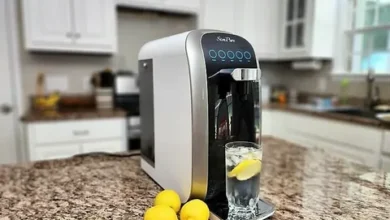Preventive Tips to Avoid Costly Emergency AC & Plumbing Repairs

Homeownership is a rewarding experience, but it comes with the significant responsibility of maintaining the complex systems that keep your household running smoothly. Among the most critical of these are your air conditioning and plumbing. They are the unsung heroes of daily comfort, providing cool relief on sweltering days and ensuring clean water flows on demand. However, when either of these systems fails unexpectedly, it can instantly disrupt your life, creating a stressful and often expensive emergency. A burst pipe flooding your kitchen or a failed air conditioner during a heatwave are situations no homeowner wants to face.
The good news is that many of these catastrophic failures are not sudden, unavoidable events. They are often the result of minor issues that were left unaddressed over time. Proactive, preventive maintenance is the single most effective strategy for protecting your home, your comfort, and your budget from the shock of an emergency repair bill. By dedicating a small amount of time to regular care and professional servicing, you can significantly extend the lifespan of your equipment and catch potential problems long before they escalate. This guide provides essential preventive tips for both your AC and plumbing systems to help you avoid costly and inconvenient emergencies.
Essential Preventive Maintenance for Your Air Conditioning System
Your AC unit works incredibly hard, especially during the hot season. This constant operation puts significant strain on its mechanical and electrical components. Preventive care is crucial to ensure it remains reliable and efficient.
1. Regularly Replace Your Air Filters
This is the simplest yet most impactful maintenance task for any homeowner. A dirty air filter restricts airflow, forcing the AC’s blower motor to work harder and consume more energy. This strain can lead to overheating and premature motor failure. More critically, reduced airflow can cause the evaporator coil to freeze over, which can completely halt cooling and potentially damage the compressor—the heart of your AC system.
- Action Tip: Inspect your air filter monthly and replace it at least once every three months. If you have pets, smokers, or allergy sufferers in the home, you should replace it every 30-60 days.
2. Keep the Outdoor Condenser Unit Clean and Clear
The outdoor unit (the condenser) is responsible for releasing the heat that was removed from your home. For it to work effectively, it needs unrestricted airflow. Over time, the condenser coils can become caked with dirt, dust, pollen, and grass clippings, which insulates them and traps heat.
- Action Tip: At the beginning of each cooling season, turn off the power to your unit at the breaker box. Use a garden hose (on a gentle setting) to rinse the condenser fins from the inside out, washing away any accumulated debris. Additionally, maintain at least two feet of clear space around the entire unit, trimming back any shrubs, weeds, or overhanging branches.
3. Inspect and Clear the Condensate Drain Line
Your air conditioner removes a significant amount of moisture from the air as it cools. This condensation is collected and drained away through a small PVC pipe called the condensate drain line. Over time, algae and sludge can build up in this line, causing a clog. When this happens, the water backs up, potentially overflowing the drain pan and causing significant water damage to your ceilings, walls, or furnace.
- Action Tip: Periodically check the point where the drain line exits your home to ensure water is dripping out while the AC is running. To clear the line, you can pour a mixture of distilled vinegar and water down the access port (usually a T-shaped pipe near your indoor unit) to kill algae and break up sludge.
4. Schedule Annual Professional Tune-Ups
While the tips above are crucial DIY tasks, they cannot replace a comprehensive professional inspection. An annual tune-up by a qualified technician is the best way to prevent an emergency ac situation. During a service visit, a technician will perform vital checks that homeowners cannot, such as measuring refrigerant levels, testing electrical components like capacitors and contractors, cleaning the evaporator and condenser coils thoroughly, and lubricating moving parts. This professional oversight ensures your system is running safely, efficiently, and reliably.
Essential Preventive Maintenance for Your Plumbing System
Plumbing emergencies can be particularly destructive, as even a small leak can lead to widespread water damage and mold growth. These tips can help you keep your pipes and fixtures in top condition.
1. Know Your Water Main and Shut-Off Valves
In a plumbing emergency, the first and most critical step is to shut off the water supply to minimize damage. Every homeowner should know the location of their main water shut-off valve and how to operate it. Additionally, individual fixtures like toilets and sinks have their own local shut-off valves (stop valves).
- Action Tip: Locate your main shut-off valve (often in a basement, crawl space, or utility box outside). Test it once a year to ensure it isn’t seized. Also, locate the stop valves for all major appliances and fixtures.
2. Be Mindful of What Goes Down Your Drains
The most common cause of plumbing clogs is introducing materials that the system isn’t designed to handle. Kitchen drains are susceptible to grease, coffee grounds, and fibrous food waste, while bathroom drains are prone to hair and soap scum.
- Action Tip: Never pour grease or oil down the kitchen sink; collect it in a container and dispose of it in the trash. Use drain screens in showers and tubs to catch hair. Only flush human waste and toilet paper down the toilet—avoid flushing “flushable” wipes, paper towels, or feminine hygiene products.
3. Regularly Inspect for Leaks
Small leaks are often the prelude to major water damage. A slow drip under a sink or a damp spot on a ceiling can go unnoticed for weeks, allowing moisture to saturate building materials and promote mold growth.
- Action Tip: Once every few months, conduct a visual inspection of all exposed pipes, including under sinks, behind the toilet, and around your water heater. Check your water meter by turning off all water-using appliances and seeing if the dial is still moving, which would indicate a hidden leak.
4. Protect Your Pipes from Freezing Temperatures
If you live in a climate with cold winters, a frozen pipe is a significant risk. When water freezes, it expands, creating immense pressure that can rupture a pipe, leading to a major flood once the ice thaws.
- Action Tip: Before the first freeze, disconnect all outdoor hoses and drain the lines. Insulate any exposed pipes in unheated areas like crawl spaces, basements, and attics. During a severe cold snap, allow faucets to drip slightly to keep water moving.
By integrating these simple, proactive habits into your home maintenance routine, you can move from a reactive to a preventive mindset. Taking care of your AC and plumbing systems doesn’t have to be a daunting task. A little attention goes a long way in preventing the stress, mess, and expense of an emergency. Regular professional service, especially for your complex HVAC system, provides the ultimate peace of mind, ensuring your home remains a comfortable and safe haven year-round.
Frequently Asked Questions
How can I tell if my AC is low on refrigerant? Signs of low refrigerant include the unit blowing air that isn’t cold, ice forming on the refrigerant lines or outdoor unit, and a hissing or bubbling noise. Refrigerant is in a sealed system, so low levels always indicate a leak that needs to be repaired by a professional.
Is it safe to use chemical drain cleaners for clogs? While they can be effective for minor clogs, frequent use of harsh chemical drain cleaners can damage your pipes over time, especially older ones. It’s better to use a drain snake or an enzymatic cleaner for regular maintenance. For stubborn clogs, call a plumber.
What is that banging noise in my pipes? That sound, often called “water hammer,” occurs when a valve is shut off quickly, causing the water moving through the pipes to come to an abrupt stop. This creates a shockwave. It can sometimes be fixed by installing a water hammer arrestor.
How long should my AC unit last? With regular annual maintenance, a central air conditioner can last 15-20 years. Without it, the lifespan can be significantly shorter.
Why is my water heater making a popping noise? This is usually caused by sediment buildup at the bottom of the tank. The popping sound is water trapped under the sediment boiling. The tank should be professionally flushed annually to remove this sediment, which improves efficiency and extends the life of the heater.
About HVA Heating & Air
At HVA Heating & Air, we understand that a comfortable home relies on more than just temperature control. While our expertise is in providing exceptional heating and air conditioning services, we advocate for a holistic approach to home maintenance. Our certified technicians are dedicated to keeping your HVAC system running at peak efficiency to prevent unexpected breakdowns and ensure your comfort. We are committed to empowering homeowners with the knowledge to care for their property, helping you protect your most important investment from the ground up.
Business Name: HVA Heating & Air
Address: 7862 Saddle Creek Trail, Sarasota, FL 34241
Phone Number: (941) 726-0941



